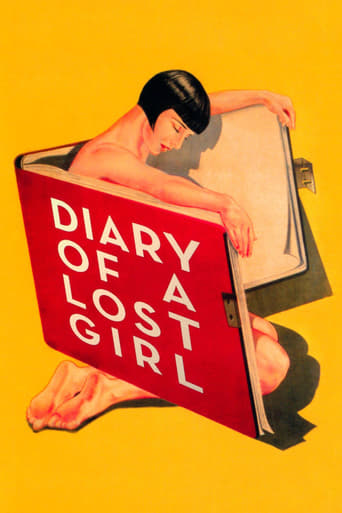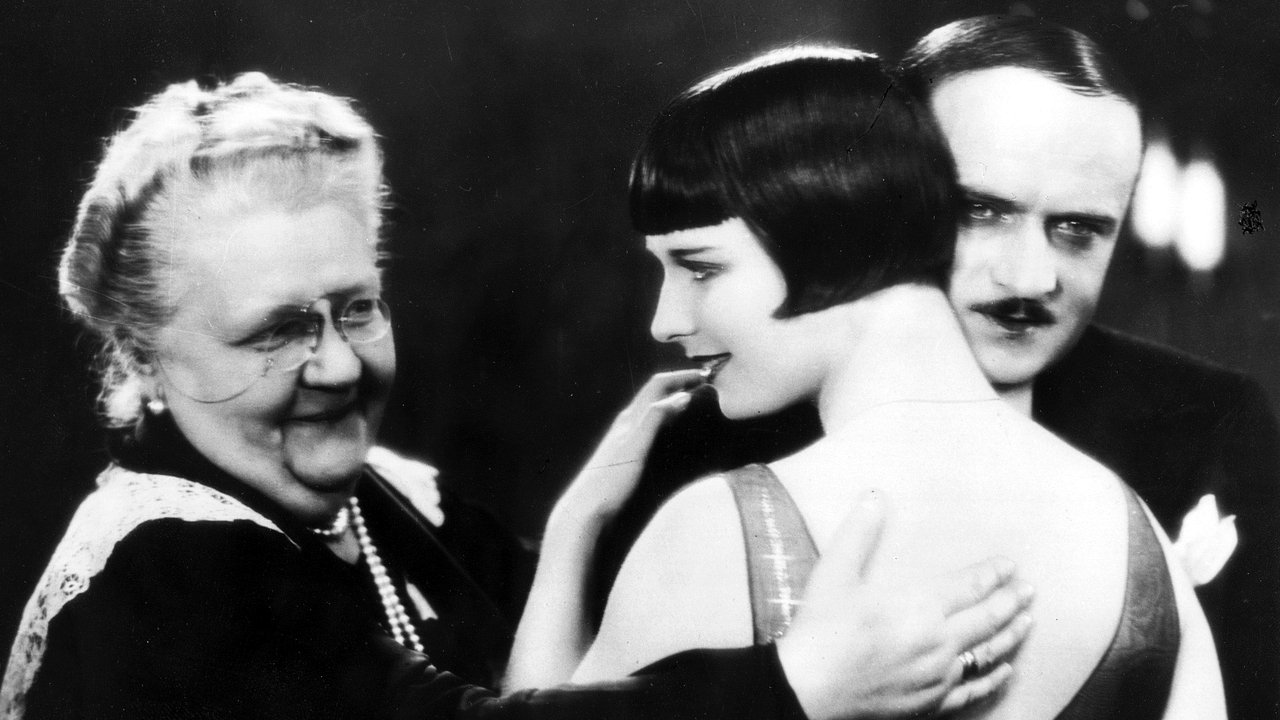gavin6942
Thymian (Louise Brooks), the naive daughter of pharmacist Robert Henning (Josef Rovenský), is puzzled when their housekeeper (Sybille Schmitz) leaves suddenly on the day of Thymian's confirmation. Her body is brought to the pharmacy later that day, an apparent suicide by drowning.What we have here is a film that features sexual assault, unwanted children, prostitution and an amazing beard... all in the 1920s. This seems to go above and beyond what censors in those days would tolerate (but maybe Germany has different standards).I definitely need to watch this again... I did not give it my full attention, and being a silent film, I may have missed some important stuff.
odresel
Saw this last night on a DVD I bought in Shenzhen, China. Enjoyed it thoroughly, though I don't know which 9 minutes of the film were cut at one point, and then restored in the print I watched.Clarifying the relationships: Meinert works for Herr Henning. Henning owns the pharmacy, and later on we learn that he actually inherited it from his late wife (you have to be able to read the summons to the reading of the will to know that; and that's why Thymian gets a share of it when he dies.) Meinert is essentially an apprentice of some sort, who is hoping to usurp the whole business for himself when Henning dies. That's why he seduces Thymian (perhaps has some idea of marrying the boss' daughter at the start of the film, his French postcards aside...), and then sucks up to Meta when she marries Henning.
jonathan-577
Yow, what is not to like about Louise Brooks. Seriously. This is the first of her too-few movies I've seen straight through and as Siue says she is The Most Beautiful Person In History; with her angular, boyish fashions and wry sideways smile to compliment her beaming grin, she also leaps out of her context like she got there by time machine. And there's a hell of a movie built around her. The plastic is a meller about a fair maiden's victimization by a conniving pharmacist - in fact ALL the men in this film are either ogres or clods, and there's a bald headmaster who you will laugh at a lot once I whisper you the words "Stephen Harper". But Pabst, who knows his Brecht (he did the Threepenny movie), twists this stuff two ways. When he feels like it, he directs actors with a subtlety and precision I've never seen in a silent movie before: a lot of the narrative is told entirely with the actors' eyes. But at the same time, this film is not just witty, it's GOOFY, with broad comic scenes that skirt the ridiculous in a way that challenges you from left field - dare you laugh at a silent masterpiece when it presents a spoiled aristocrat failing to milk a cow, or a horny bastard (one of several) with a Kropotkinesque goatee mincing around the dance lesson like he's in a Dwain Esper movie? It's like, popular entertainment!!
dreverativy
The is the best film that Louise Brooks made. It is far better than the overlong "Pandora's Box", and the more I have thought about it the stranger it seems that "Dairy of a Lost Girl" should not be more famous than its overblown predecessor.The fame of "Pandora's Box" is attributable to the image and presentation of Louise Brooks as an archetype - not unlike a mannequin or fashion plate for a generation of 'liberated' German girls. "Diary of a Lost Girl" is forgotten despite its artistic superiority and the revelation that Brooks was not just a sensational beauty but a very fine actress to boot. In most of her films Brooks was called upon to pose, and perhaps to smirk - and she did it very well, but she was not asked to do any more, which might have explained her mounting frustration with the American movie business.After she completed "Pandora's Box" she sailed back to the U.S.A., perhaps expecting to be treated with greater consideration by the Paramount executives who had been driven to distraction by her uncompromising (selfish?) working methods. The long suffering managing executive B. P. Shulberg offered her a much higher salary in order to turn her last American silent, "The Canary Murder Case" (which I have not seen) into a talkie. Oddly, she viewed this as an insult and treated Shulberg with undeserved contempt. Having destroyed her relationship with Adolph Zukor's Paramount she returned to G. W. Pabst in 1929 - she presumably hoped that Hom-Film would be a more accommodating employer. Accommodating, that is, of her increasingly erratic and temperamental work habits, which were lubricated by a heroic consumption of alcohol.Pabst obviously had a great affection for her (who wouldn't, even allowing for her often lamentable behaviour?), and he famously remarked on the last day of shooting that 'Your life is like Lulu's, and you will end the same way'. That was almost prophetic, and her failure to register (to Pabst) that she was in any way aware of the consequences of her folly, was discreditable. So when I look at a film as good as "Diary of a Lost Girl" I am as conscious of her striking ability, as I am appalled by what she threw away through sheer wilful arrogance. The story, by Margarete Bohme, caused a great scandal in 1905. It replicated the tale of the baroness Elsa von Freytag-Loringhoven, who committed suicide in 1927. It was not just the subject (a very candid treatment of prostitution that revealed a sordid and - worse still - undisciplined underbelly to Wilhelmine society), but the outspoken attack on the reformatory system, on the conditional and de haut en bas nature of charitable provision, and the strong suggestion of feminism that was highly offensive in a rigidly paternalistic social system.Attitudes towards manners and morals changed emphatically with the establishment of the Weimar regime, and Bohme's novel was first filmed in 1919. A decade later, and having established herself as a poster child for sexual liberation, the role of Thymiane Henning seemed ripe for fresh treatment by Brooks.Brooks performs the role of the wronged daughter who has suffered a 'fate worse than death' at the hands of a repellant apothecary's assistant (an excellent performance by the great Fritz Rasp); brutal treatment at a reformatory (more great stuff from Andrews Engelmann and a sadistic Valeska Gert - a differentiated reprise of the Sapphic character of Countess Geschwitz played by Alice Roberts in "Pandora's Box"), to further disappointments in the brothel, etc. The entire ensemble turns out a first class performance, and Pabst and Sepp Allgeier ensure that the photography complements the power of the story.



 AD
AD




